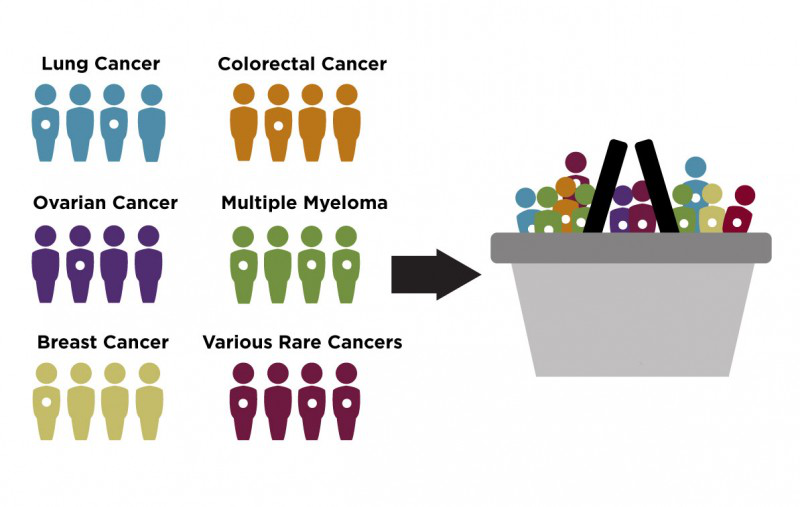Clinical Trials
Clinical trials are a critical component of the effort to develop new ways to prevent, detect, diagnose, and treat cancer and other diseases.
"Some people think that clinical trials are the last resort," says Jack Whelan of Andover, Mass., who was diagnosed with a rare form of non-Hodgkin lymphoma in 2007. "I am a survivor of a rare not-yet-curable cancer. Forward-looking science, what is available in clinical trials, was the best choice for me."
For researchers and clinicians, trials are critical to determining the potential benefits and safety of investigational cancer therapies or for understanding if an existing medication could be useful for other types of cancer.
Clinical trials are the last step before treatments are made widely available. They come after the completion of basic lab research and testing. Clinical testing in patients is key to understanding how a particular therapy will perform and what kinds of side effects may occur.
Clinical trial participants are vital partners with cancer researchers in the fight to prevent and cure cancer.
The types of clinical trials:
Phase I trials are the first studies to test a new drug or drug combination in humans and are designed to establish drug safety.
Phase II trials evaluate drug effectiveness and involve more participants than phase I studies.
Phase III trials are designed to compare a new treatment to one or more standard treatments and are usually randomized, meaning participants are randomly divided into treatment groups and not told until the study is over whether they received a standard treatment or the new treatment.
Phase IV trials are also known as post-marketing studies. These trials provide "real-world" data on the therapy.
Because new trials are continually getting underway, your oncologist may not be aware of all the studies available for patients with your specific type and stage of cancer. If you are interested in finding which clinical trials might be right for you, resources such as ClinicalTrials.gov are available. ClinicalTrials.gov is a registry of all publicly and privately supported clinical studies conducted around the world.
Before searching for a clinical trial, it is important to know the details of your cancer diagnosis, such as your cancer type and location; tumor size (if a solid tumor); cancer stage; and previous cancer treatments, if any.
Participation of Minorities in Clinical Trials
Decades of cancer research have established that people from different races and ethnicities have differences in their susceptibilities to cancer, and there are differences in the way they respond to different treatments. Therefore, it is imperative that people of different races and ethnicities participate in clinical trials to help researchers identify appropriate treatment options.
In August 2014, the Food and Drug Administration put forth an action plan to increase participation by women, minorities, and older people in clinical trials. The goal of this plan is to improve the data quality on minority participation, identify barriers to minority enrollment in clinical trials and employ strategies to encourage greater participation, and make demographic subgroup data more available and transparent.
For more information about cancer research join 12th World Cancer Congress at Moscow, Russia during July 23-25, 2018.
Link: https://goo.gl/HXAGc2

Comments
Post a Comment